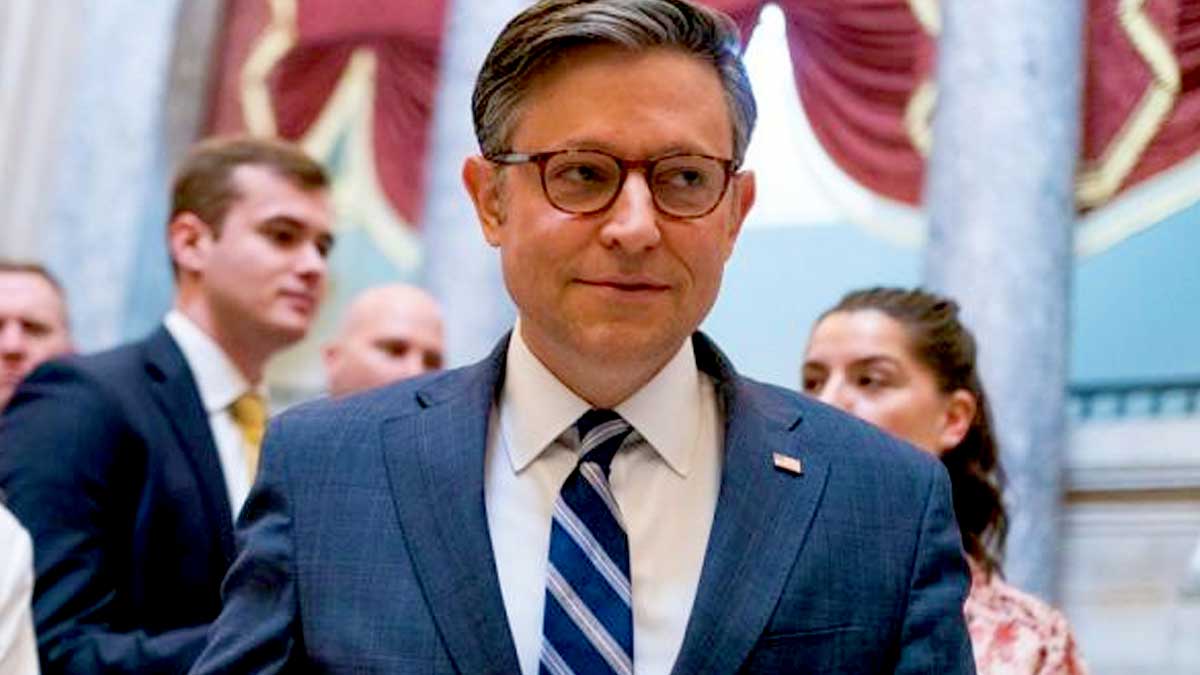- Home
- Billionaires
- Investing Newsletters
- 193CC 1000
- Article Layout 2
- Article Layout 3
- Article Layout 4
- Article Layout 5
- Article Layout 6
- Article Layout 7
- Article Layout 8
- Article Layout 9
- Article Layout 10
- Article Layout 11
- Article Layout 12
- Article Layout 13
- Article Layout 14
- Article Sidebar
- Post Format
- pages
- Archive Layouts
- Post Gallery
- Post Video Background
- Post Review
- Sponsored Post
- Leadership
- Business
- Money
- Small Business
- Innovation
- Shop
Recent Posts
New Legislation Ties TikTok Ban to Foreign Aid

Lawmakers are leveraging a new legislative package that ties aid for Ukraine, Israel, and Taiwan to the controversial goal of banning TikTok in the U.S. The move aims to increase pressure on Senators to support the forced divestment bill, which recently passed the House. Speaker Mike Johnson is spearheading the effort, hoping to secure Senate approval by linking the ban to critical foreign aid.
The revised legislation grants TikTok more time to find a non-Chinese owner, extending the deadline to a year compared to the original six-month window. This change means that any potential ban would be delayed until after the presidential election, preserving TikTok’s role as an election tool.
Despite these adjustments, concerns about the bill’s constitutionality and its potential legal challenges remain among Senators. However, Speaker Johnson is pushing forward with the TikTok bill, especially as tensions between the U.S. and China escalate. The Chinese government has strongly condemned the bill, calling it unfair and anti-competitive.
Recent reports suggest that China has intensified its lobbying efforts against the TikTok ban. Chinese Embassy officials have met with congressional staff, arguing that TikTok’s Chinese origin is the sole reason for the ban. This marks a significant shift from China’s previous stance, which denied any connection between TikTok and the Chinese government.
While TikTok maintains its position that it has no knowledge of these lobbying efforts, Chinese officials seem to be acknowledging TikTok’s ties to China as a reason to oppose the ban. This change in strategy reflects broader concerns among Chinese tech companies facing increased scrutiny in the U.S.
For now, the fate of TikTok remains uncertain, with lawmakers balancing concerns about data protection and national security against broader issues of international trade and diplomacy. As discussions continue, the U.S. remains without a comprehensive data protection law, leaving the door open for further debates and potential regulations in the tech industry.
Recent Posts
Categories
- 193 Countries Consortium Partner1
- 193cc Digital Assets2
- 5G1
- Aerospace & Defense48
- AI37
- Arts3
- Banking & Insurance11
- Big Data3
- Billionaires1,261
- Boats & Planes1
- Business332
- Careers13
- Cars & Bikes79
- CEO Network1
- CFO Network17
- CHRO Network1
- CIO Network1
- Cloud10
- CMO Network18
- Commercial Real Estate7
- Consultant1
- Consumer Tech194
- CxO1
- Cybersecurity73
- Dining1
- Diversity, Equity & Inclusion4
- Education7
- Energy8
- Enterprise Tech29
- Events11
- Fintech1
- Food & Drink2
- Franchises1
- Freelance1
- Future Of Work2
- Games149
- GIG1
- Healthcare79
- Hollywood & Entertainment203
- Houses1
- India’s 1000 Richest1
- Innovation46
- Investing2
- Investing Newsletters4
- Leadership65
- Lifestyle11
- Manufacturing1
- Markets20
- Media328
- Mobile phone1
- Money13
- Personal Finance2
- Policy569
- Real Estate1
- Research6
- Retail1
- Retirement1
- Small Business1
- SportsMoney42
- Style & Beauty1
- Success Income1
- Taxes2
- Travel10
- Uncategorized13
- Vices1
- Watches & Jewelry2
- world's billionaires1,230
- Worlds Richest Self-Made Women2
Related Articles
Jensen Huang Sees Physical AI as the Next Big Leap
Nvidia CEO Jensen Huang believes that Physical AI will be the next...
By 193cc Agency CouncilAugust 10, 2024Could AI Be the Next iPhone Moment?
The term “iPhone moment” describes a technological breakthrough that pushes innovation into...
By 193cc Agency CouncilJuly 8, 2024AI Surge Boosts Demand for Memory and Storage Innovations
The rise of artificial intelligence (AI) is significantly boosting the need for...
By 193cc Agency CouncilJuly 5, 2024Generative AI Set to Transform Finance Jobs
Generative AI is poised to revolutionize the financial services industry by automating...
By 193cc Agency CouncilJune 10, 2024















Leave a comment